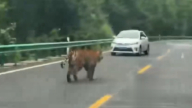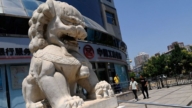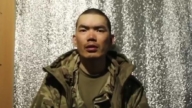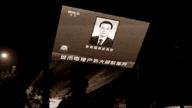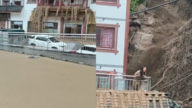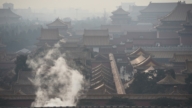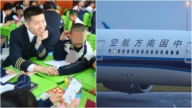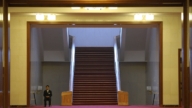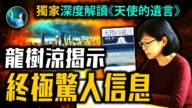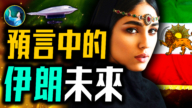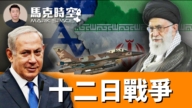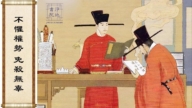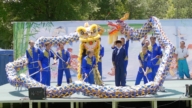【新唐人2012年1月14日讯】中共总理温家宝将在1月14号到19号期间,访问沙特阿拉伯、阿拉伯联合酋长国和卡塔尔,并出席在阿联酋阿布扎比举行的第五届“世界未来能源峰会”。外界认为温家宝这次前往阿拉伯三国,是为了减少从伊朗进口石油,因此转向其他国家。
温家宝将是20年来首次访问沙特的中共领导人,而他对阿联酋和卡塔尔的访问则是双方建交后,中共总理的首次到访。
中国是伊朗石油原油的最大出口市场。去年,中国11%的石油进口来自伊朗。
政论家伍凡向《新唐人》表示,联合国为了遏制伊朗核试验,已经通过四次决议制裁伊朗,但都没有得到中国的支持。最近美国国会决定凡是和伊朗有经济来往的国家,美国将断绝和这些国家的中央银行往来,并且得到了全世界其他国家的支持, 但中国还是没有动静。
几天前,美国派财政部长盖特纳前往北京,试图劝说中国支持美国制裁伊朗的石油工业,以防止威胁人类的核扩散,但中方没有点头,不过实际上,中国和伊朗的石油交易已经减少一半。伍凡认为,温家宝前往阿拉伯三国是为了石油。
伍凡:“实际上是到那里去谈判:从那里增加进口石油到中国来。如果中国不答应美国,还从伊朗进口石油,那么美国要执行他的法律,中国所有出口到美国来,或者从美国进口到中国去的货品,全部终止往来,美国银行统统拒绝, 那就牵扯利益更大了,现在美国是中国很大的出口市场。”
中东地区的“茉莉花革命”一直是中共害怕又敏感的问题。阿拉伯世界爆发了“茉莉花革命”后,中国一些活动人士也在网上发起了所谓的“茉莉花散步行动”,但遭到当局的严厉镇压。当局还通过“强迫失踪”、软禁、判刑以及其他手段,防止中国的活动人士和民众效仿“阿拉伯之春”。
中共外交部副部长翟隽在温家宝这次出访的媒体吹风会上说,除了加强同这些国家的关系外,温家宝将讨论阿拉伯世界最近发生的变化。
旅美政治评论家,前“哥伦比亚大学”访问学者陈破空认为,中共政府对“阿拉伯之春”存在矛盾心理。一方面害怕这种民主变革蔓延到中国,另一方面,中国与这些发生变革的国家又有着千丝万缕的联系,中共不希望因为这些国家的变革或是意识形态的变化,而使自己的利益受到损害,因此力图跟这些国家的新政权建立良好关系。
伍凡认为,中共会采取打皮球的办法,来应付这些国家的新政府。
伍凡:“中共很容易对付﹙阿拉伯国家政府﹚,它就会讲不干涉主义,我不干涉外国内政,你们怎么做我不管,你们也不要干涉我的内政,你们不要把茉莉花革命推到我这里来啦,但是你光讲没用,中国老百姓欢迎啊,中国老百姓支持,要求把穆巴拉克处死。”
中共外交部副部长翟隽已经意识到,国际形势正在经历冷战以来最为深刻复杂的变化,他说,特别是西亚、北非地区的局势,正在成为继“苏东剧变”、“9•11”事件、阿富汗和伊拉克战争,以及国际金融危机之后的又一重要历史事件。
新唐人记者刘惠、李若琳采访报导。
Oil Focus for Wen Jiabao Visit to Three Arab Countries
Chinese Communist Party (CCP) Premier Wen Jiabao will
officially visit Saudi Arabia, UAE and Qatar on Jan.14 to 19.
Wen will also attend the 5th “World Future Energy Summit"
in Abu Dhabi, United Arab Emirates.
Commentators say Wen’s visit to three Arab countries is to
seek oil supplies, reducing oil imports from Iran.
Wen Jiabao will be the first CCP leader to visit Saudi Arabia
in over 20 years.
Wen will be the first CCP Premier to visit to the UAE since
they established diplomatic relations with the Beijing regime.
China is Iran’s largest crude oil export market.
In 2011, 11% of China’s oil imports came from Iran.
Political commentator Wu Fan says the UN has ratified four
sanctions against Iran, all opposed by the CCP regime.
The U.S. Congress recently decided to cut ties with central
banks of all nations that have economic ties to Iran.
The decision has gained worldwide support, yet China is in
utter silence.
U.S. Treasury Secretary Timothy Geithner recently visited
Beijing, trying to persuade the CCP regime on the issue.
It was hoped the CCP would support the U.S. sanctions
against Iran’s oil industry, to prevent nuclear proliferation.
However, the Beijing regime has yet to agree.
In reality, the oil transactions between China and Iran have
been reduced by half.
Wu Fan believes that Wen Jiabao’s visit to three Arab
nations is with an eye toward oil supplies.
Wu Fan: “He actually goes there for negotiating oil imports.
If China doesn’t agree with the U.S. yet still imports oil from
Iran, the U.S. would stop all trade with China.
That would involve more interest, as now the U.S. is China’s
largest export market."
The Jasmine Revolution in the Middle East has long been
a sensitive issue of the CCP regime.
Chinese activists launched alleged “Jasmine walking actions"
via the internet, but authorities severely repressed this action.
The regime used various means like forced disappearance,
house arrest and sentencing to prevent these activists.
CCP vice Foreign Minister Zhai Jun spoke of
this issue with reporters.
In addition to strengthening relations with three nations,
Wen Jiabao will discuss recent upheavals in the Arab world.
US-based political commentator, Chen Pokong reviewed
the CCP regime’s ambivalence on the “Arab Spring".
The regime fears the democratic change will reach China,
while China remained an intricate link with these nations.
The CCP hopes these nations’ revolutions or ideological
changes will not harm its own interests,
The CCP is trying to establish good connections with these
new governments.
Wu Fan says the CCP will play ball to cope with
these new Arab governments.
Wu Fan: “It’s very easy for the CCP to deal with them.
It’ll claim its non-interference doctrine. ‘I won’t interfere in
the domestic affairs of other countries.
In return, nor will you interfere with mine.’
The CCP hopes the Jasmine Revolution won’t spread in
China
Chinese people welcome it, expecting an execution of
Mubarak."
CCP’s Vice Foreign Minister Zhai Jun has realized the
international situation is facing big changes.
The most profound and complex changes since the
Cold War.
Zhai said that the situation in West Asia and North Africa
have become another important historical event.
This follows the drastic changes in Eastern Europe and
the former Soviet Union.
As well as the 9/11 Events, the Iraq and Afghan wars
and the international financial crisis.
NTD reporters Liu Hui and Li Ruolin


